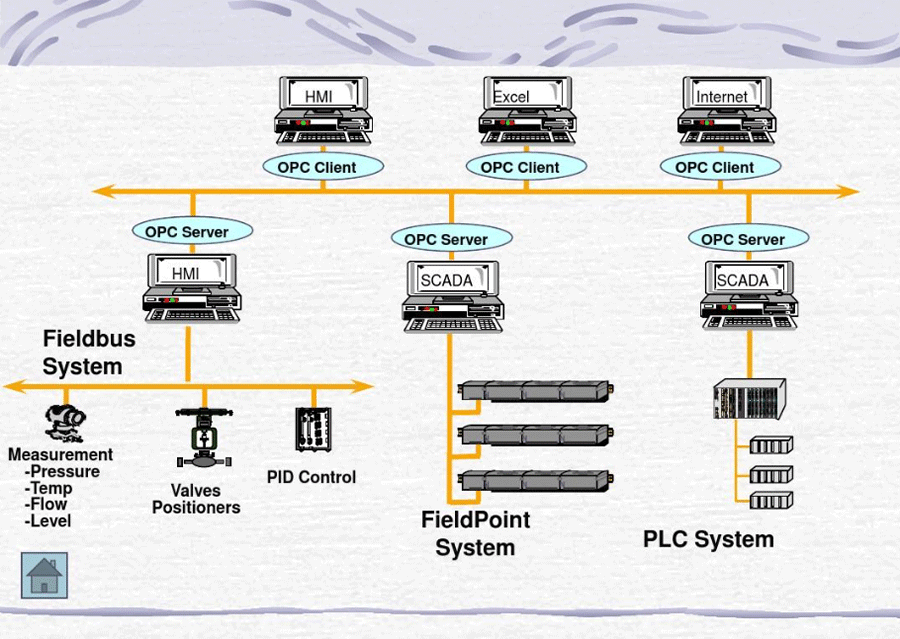Copyright © Shanghai Chuangdaozhihe Equipment Technology Co., Ltd. All Rights Reserved. Site Map
- +86-150264808540086-021-66532769 ext. 805
- chdvip888@outlook.com
- Room 711, Enterprise Plaza, 228 Meiyuan Road, Jing'an District, Shanghai, China

Fieldbus , an industrial data bus that has rapidly developed in recent years, primarily addresses digital communication between intelligent instruments , controllers, actuators , and other field devices, as well as information transfer between these devices and advanced control systems . Due to its outstanding advantages, such as simplicity, reliability, and cost-effectiveness, fieldbus has attracted significant attention from many standards bodies and computer manufacturers.
Fieldbus technology development:
Fieldbus is an industrial communication system that connects a large number of field-level devices and operational-level equipment in automation systems. It is generally defined as an open, digital , bidirectional serial, multi-node communication bus for intelligent field devices and automation systems.
Fieldbus, a communication network developed internationally in the late 1980s and early 1990s, is used to interconnect intelligent field devices in fields such as process automation, manufacturing automation, and building automation. As the foundation of digital factory communication networks, it connects production process sites and control devices with each other and with higher-level control and management layers. It is not only a grassroots network but also an open, new type of fully distributed control system. This integrated technology, which primarily encompasses intelligent sensing, control, computing, and digital communications, has garnered worldwide attention and become a hot topic in automation development, promising profound changes in the architecture and equipment of automation systems. Many influential and powerful international companies have developed fieldbus technology and products to varying degrees. Fieldbus devices operate at the lower level of process equipment. As a fundamental factory equipment-level communication network, fieldbus devices require simple protocols, strong fault tolerance, excellent security, and low cost. They must maintain certain time determinism and high real-time performance requirements, maintain stable network loads, and utilize mostly short frames for transmission, with frequent information exchange. These characteristics give fieldbus systems, from their network structure to their communication technology, distinct characteristics from those of upper-layer high-speed data communication networks.

Fieldbus technology
Fieldbus systems are generally referred to as the fifth generation of control systems, also known as FCS (Fieldbus Control System). Pneumatic signal control systems (PCS) before the 1950s are generally considered the first generation, 4-20mA and other electrical analog signal control systems are the second generation, digital computer centralized control systems are the third generation, and distributed control systems (DCS) since the mid-1970s are the fourth generation. As a new generation of control systems, FCS fieldbus control systems, on the one hand, break through the limitations of DCS systems, which rely on dedicated communication networks, and adopt open, standardized solutions to overcome the shortcomings of closed systems. On the other hand, they transform the DCS's centralized and decentralized distributed system structure into a new fully distributed structure, completely delegating control functions to the field. It can be said that openness, decentralization, and digital communication are the most prominent characteristics of fieldbus systems.